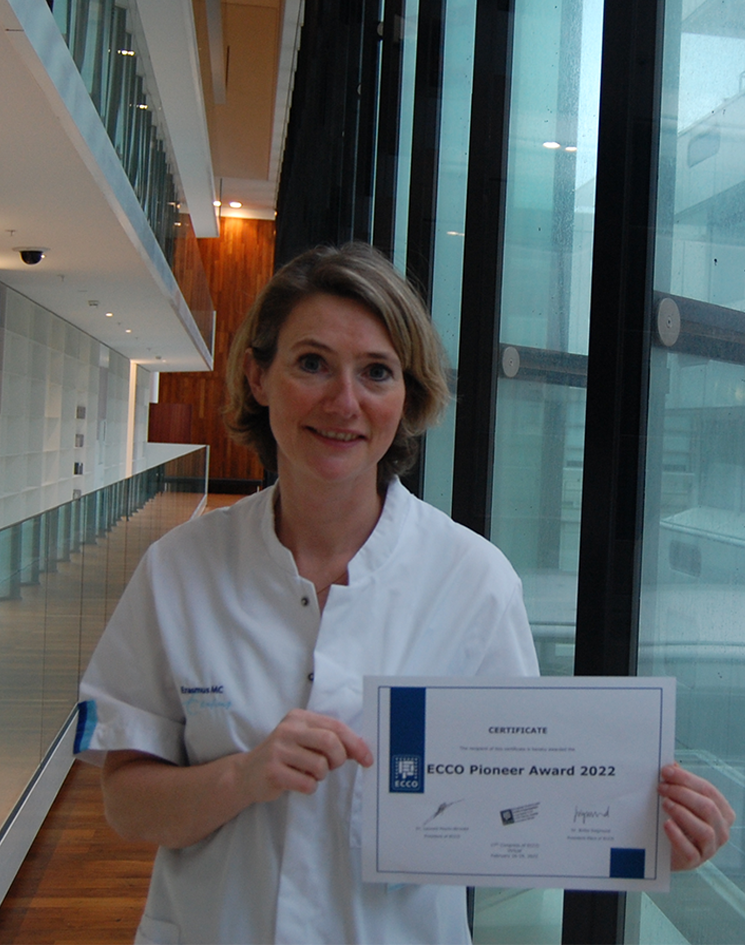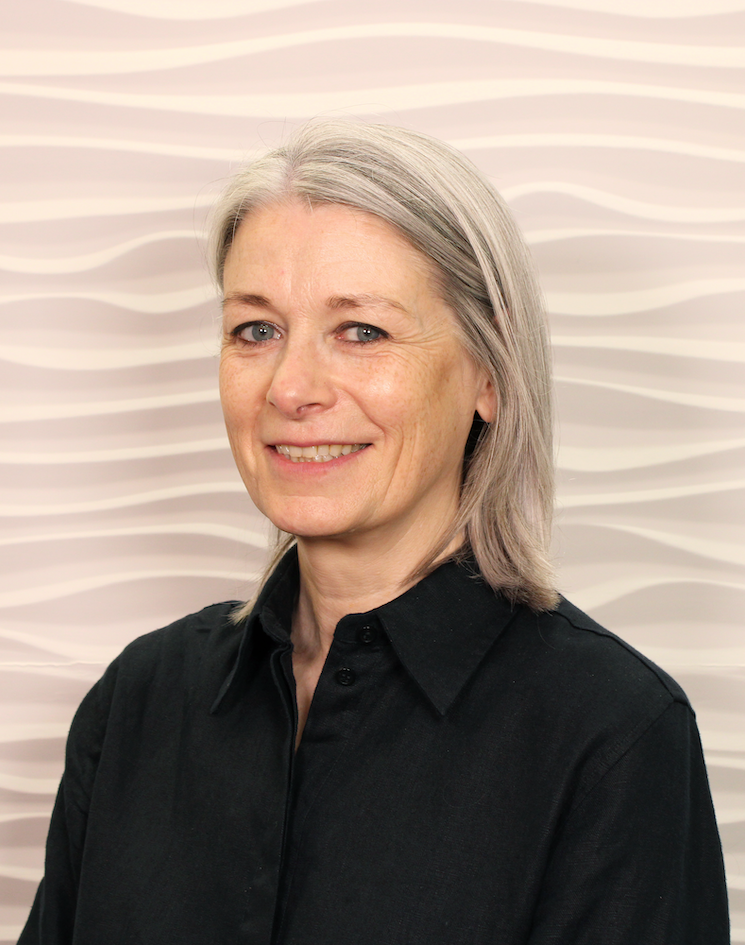ECCO Pioneer Award Synopsis: Annemarie de Vries & Alison Simmons
Annemarie de Vries, ECCO Grant Awardee
Identification of markers to predict post-operative disease recurrence in Crohn's disease.
 Annemarie de Vries © Annemarie de Vries |
 Alison Simmons © Alison Simmons |
Background & aim of research
Ileocolonic resection (ICR) remains an important modality in the treatment of ileal or ileocolonic Crohn’s disease (CD)1,2. However, surgery is not curative and post-operative recurrence after ICR is common, with regard to clinical symptoms, endoscopy and need for re-resection2,3. To prevent post-operative recurrence, current guidelines advise to start prophylactic medication in patients at high risk4–6. Identification of these patients remains a challenge, despite clinical and histologic risk-stratification. The main aim of this study is to identify new biomarkers to predict endoscopic disease recurrence in a prospective cohort of CD patients who undergo ICR.
Methodology/experiments that will be used
To do this, we propose to employ a novel multi-omics approach that combines scRNA-seq and ST (hypothesis generation). Hypothesis generation will be performed with unbiased, exploratory data-analysis. The second objective is to validate the identified biomarkers on archived tissue (hypothesis testing), and to develop a practical guide for the use of the biomarkers in clinical practice, as a readily available adjunct to histologic assessment.
Anticipated main impact
The major anticipated outcome in the short-term will be a single-cell spatio-temporal atlas of CD recurrence with a wealth of data for hypothesis generation on recurrence and pathogenesis of CD. In the medium-term, we anticipate advancing patient stratification to the next level and come to a more accurate individual risk estimation for CD recurrence, which would constitute a significant departure from the current state of the field. In the long-term, integration of new biomarkers into existing knowledge on postoperative CD recurrence is anticipated i.e., clinical predictors, histology, microbiotica diversity and genetics.
Proposed timeline
We are currently awaiting approval of our amended protocols by the IRB. Recruitment and sample collection will start shortly from various academic hospitals around the Netherlands (October 2022). Resection samples will be collected at the time of surgery. Six months post-surgery, endoscopies will be carried out to identify recurrence. Based on this, initially stored samples will then be used to carry out scRNA seq and ST. Data analysis will be carried out and modules generated that may help distinguish CD recurrence. This will take upto one year to complete. Modules will then be validated on a cohort of patients by IHC, which should take a further six months to complete.
References
- Frolkis, A. D. et al. Risk of surgery for inflammatory bowel diseases has decreased over time: a systematic review and meta-analysis of population-based studies. Gastroenterology 145, 996–1006 (2013).
- Beelen, E. M. J. et al. Decreasing Trends in Intestinal Resection and Re-Resection in Crohn’s Disease: A Nationwide Cohort Study. Ann Surg 273, 557–563 (2021).
- Frolkis, A. D. et al. Cumulative incidence of second intestinal resection in Crohn’s disease: a systematic review and meta-analysis of population-based studies. Am J Gastroenterol 109, 1739–1748 (2014).
- Gionchetti, P. et al. 3rd European Evidence-based Consensus on the Diagnosis and Management of Crohn’s Disease 2016: Part 2: Surgical Management and Special Situations. J Crohns Colitis 11, 135–149 (2017).
- American Gastroenterological Association. American Gastroenterological Institute Guideline on the Management of Crohn’s Disease After Surgical Resection: Clinical Decision Support Tool. Gastroenterology 152, 276 (2017).
- Nguyen, G. C. et al. American Gastroenterological Association Institute Guideline on the Management of Crohn’s Disease After Surgical Resection. Gastroenterology 152, 271–275 (2017).